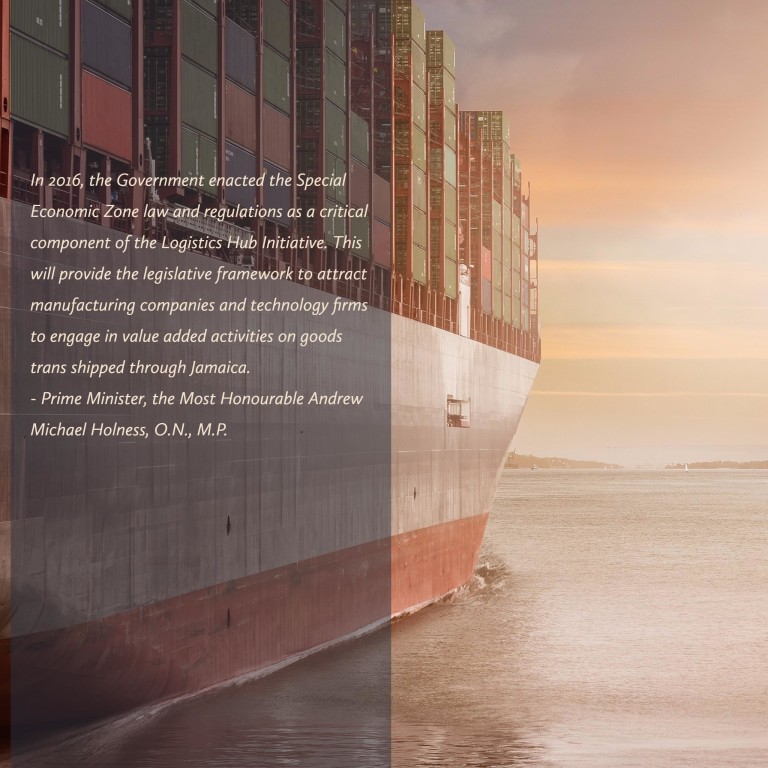Free Zone to SEZ: a new policy direction
The name change from Free Zone to SEZ is not a simple matter of form over substance. The SEZ concept is a deliberate policy break away from past policy and is intended to send a clear signal to the investor community (domestic and international); the multilateral lending agencies; and the WTO that Jamaica is moving in a new policy direction.
The Free Zones of the past were largely export processing zones reliant on non-World Trade Organization (WTO) compliant export performance fiscal incentives, the SEZ on the other hand move beyond export processing and is fully WTO compliant.
The Jamaica SEZ model
SEZs are purposed built and fully serviced sites aimed at improving the competitiveness of manufacturing and services. They are founded on the principles of improving efficiency, clustering of complementary value added services, and seamless integration into the global value chains, low corporate taxation and a business friendly environment.
These principles, however, are not self-applying. They have to be implemented systematic and this is where the Jamaica Special Economic Zone Authority (JSEZA) comes into play. JSEZA is the government body charged with regulating, monitoring, supervising, promoting and facilitating investments in SEZs in Jamaica. Through the work of JSEZA SEZs investors will facilitate and be facilitated by:
- Developing world class industrial infrastructure, supported by world class transport infrastructure (road, rail, airport and ports) that function as trade facilitators;
- Competitively priced energy;
- Increase cargo flows through increased transshipment throughput; increased imports as inputs into production (SEZ and domestic); and increased exports as semi or finished goods (SEZ or domestic) that have the Made in Jamaica label;
- Optimize and analyzing cargo flow information to seek out, attract and manage higher value-added logistics activities; and
- Create backward linkages to the rest of economy through our Micro, Small, Medium Enterprises (MSMEs) through the sourcing of domestics raw materials as inputs into production and by subcontracting of local service providers.
Read more: http://www.commerciallawinternational.com/?p=1804




